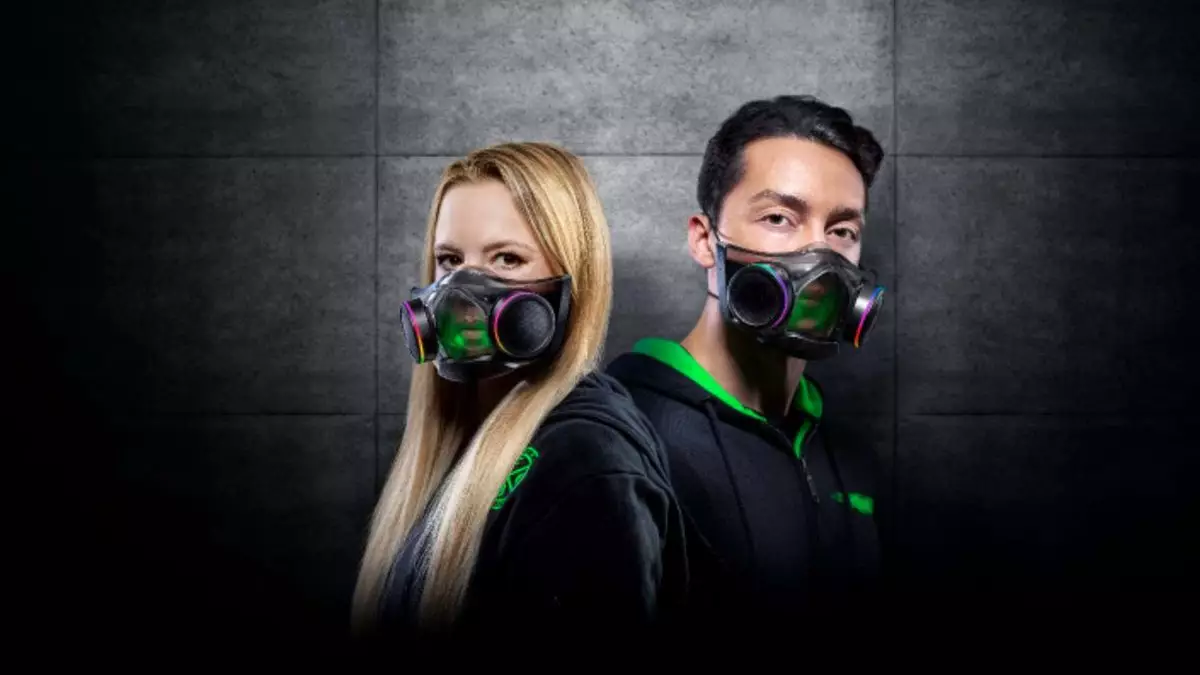The pandemic brought about a surge in the demand for personal protective equipment, and companies seized the moment to innovate—or, in some cases, mislead. Razer, a brand primarily known for its gaming peripherals, ventured into the personal protective equipment market with the Zephyr mask. Launched at a price point of $100, this mask boasted a sleek design, RGB lighting, and claimed features that suggested a level of safety that it ultimately did not deliver. This article delves into the implications of Razer’s marketing strategies, the ensuing legal battles, and what this case reveals about consumer protection in the context of health and safety.
The Zephyr mask’s introduction came with aggressive marketing tactics that highlighted “N95 Filters,” causing many to mistakenly assume that it offered N95-level respiratory protection. This presumption was misleading, as Razer later acknowledged that the Zephyr was not a medical device and lacked any certification as an N95 mask. The Federal Trade Commission (FTC) soon became involved, marking the beginning of a protracted struggle over the truthfulness of these claims.
This miscommunication raises crucial questions regarding consumer trust and corporate responsibility in marketing. In a climate where masks became essential tools for combating the spread of Covid-19, the expectation was that any product promoting safety would be thoroughly vetted and validated. To learn that Razer had not submitted the masks for proper testing adds an alarming dimension to this narrative. It reflects a broader trend where companies prioritize marketing over consumer welfare, with significant implications for those searching for reliable protection.
In April 2024, the FTC formally charged Razer for deceptive marketing practices. The settlement resulted in Razer agreeing to a hefty payment of over $1 million for consumer relief, with $100,000 designated as a fine. This was a pivotal moment not only for the company but also for consumers who had sought safety in a time of crisis. Following the settlement, approximately 6,764 individuals who purchased the mask were eligible for refunds, a silver lining amidst a storm of discontent.
However, the FTC’s findings indicated that Razer’s refund policy was grossly inadequate. It only refunded less than 6% of purchases, revealing how many customers struggled to navigate the refund process. Whether they were denied refunds for trivial reasons or disheartened by customer service responses, the investigation highlighted systemic issues that compounded consumers’ frustrations.
The fallout from the Zephyr mask incident underscores the critical need for accountability, especially in the realm of health-related products. In times of public health crises, consumers must be able to trust that the products they purchase are safe and effective. Razer’s experience is a stark reminder that consumer protection regulations must evolve to address the nuances of modern marketing practices.
Moreover, the incident serves as a cautionary tale for consumers. In an era characterized by rapid innovation and attractive marketing, consumers are often left without the expertise to discern genuine safety claims from embellished promises. As a result, consumer education is essential; people need to be equipped with the tools to make informed decisions about the products they use, especially when it involves their health.
The Razer Zephyr mask controversy will likely have lasting effects on the personal protective equipment landscape. Brands must tread carefully, as misinformation can lead to legal consequences and irreparable damage to consumer trust.
Additionally, there remains a palpable demand for effective and stylish masks among consumers who continue to prioritize health and safety. It creates an opportunity for companies to rise to the occasion, creating robust, fashionable products backed by rigorous testing and transparency.
Razer’s journey with the Zephyr mask serves as a lesson for stakeholders across the board: transparency and integrity in marketing are fundamental. The barriers between innovation and deception must be closely examined, ensuring that truth remains at the forefront of consumer-safety initiatives.

